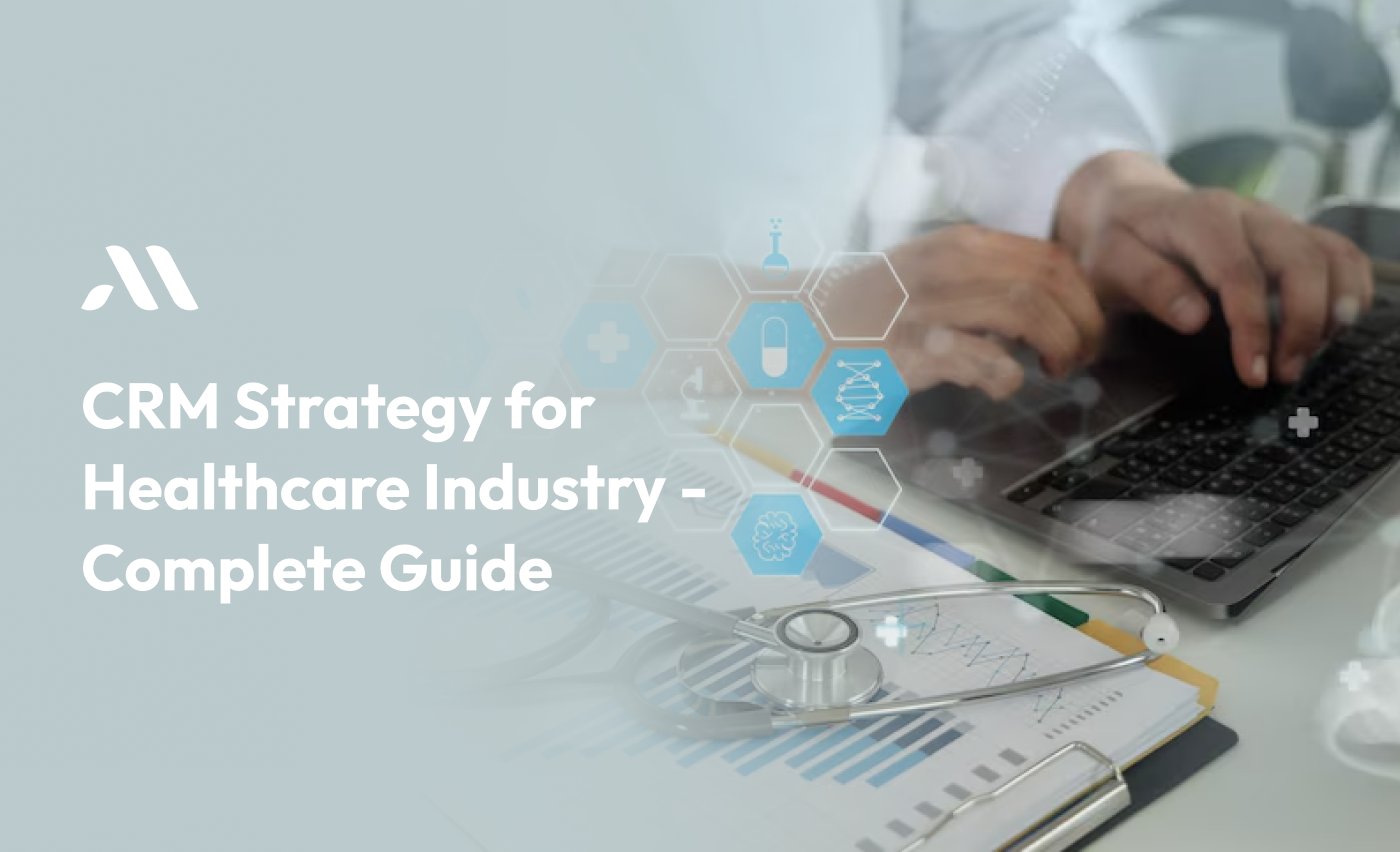Introduction
In today's fast-paced world, Healthcare Businesses and Startups need to keep up with the growing demands of patients and clients. One powerful tool that can help is a Customer Relations Management System (CRM). This guide will walk you through everything you need to know about building a strong CRM strategy for your healthcare business.
- As per Statista, 80% of healthcare providers believe that implementing a CRM strategy has improved patient satisfaction.
- 70% of healthcare businesses that use Customer Relations Management Systems report better patient retention rates.
- 60% of healthcare startups that implemented a CRM strategy framework saw an increase in operational efficiency.
These numbers show that a strong CRM strategy can have a significant positive impact on your healthcare business.
What is a CRM Strategy?
A CRM strategy is a plan that helps businesses Manage Relationships with Their Customers. In the healthcare industry, it helps you keep track of patient information, communicate better with patients, and ensure that everyone gets the best care possible. Think of a CRM as a digital assistant that helps you manage all the important details about your patients and clients.
Why is a CRM Strategy Important for Healthcare?
A good CRM strategy for healthcare is important because it helps you stay organized and improves patient care. When you have a strong CRM strategy framework, you can easily access patient information, track appointments, send reminders, and even follow up after treatments. This makes patients feel valued and helps you build long-lasting relationships.
Remember: Happy patients are more likely to recommend your services to others, which can help grow your healthcare business!
Key Features of a CRM Strategy for Healthcare
Here are some key features that your CRM strategy framework should include:
Patient Management: A Customer Relations Management System should help you keep track of all patient information in one place. This includes personal details, medical history, and appointment schedules.
Communication Tools: Your CRM strategy should include tools for sending emails, texts, or even making phone calls to patients. This helps you stay in touch and provide timely information.
Appointment Scheduling: A good CRM strategy for healthcare should make it easy to schedule and manage appointments. This ensures that patients never miss an important visit.
Analytics and Reporting: Your CRM strategy framework should help you track patient data and generate reports. This helps you understand trends and improve your services.
Custom CRM Development: Sometimes, you may need a Custom CRM Development Company to create a system that fits your specific needs. This helps you to have features tailored to your healthcare business.
How to Build a CRM Strategy for Healthcare
Building a CRM strategy doesn't have to be complicated. Here’s a step-by-step guide:
1. Identify Your Goals
Before you start, think about what you want to achieve with your CRM strategy for healthcare. Do you want to improve patient communication? Or maybe you want to make appointment scheduling easier? Knowing your goals will help you choose the right tools and features.
2. Choose the Right CRM System
There are many Customer Relations Management Systems out there, but not all are suited for healthcare. Look for a system that provides the features you need, such as patient management and communication tools. You can also consider Custom CRM Development if you have specific requirements.
Tip: When choosing a CRM system, make sure it is easy to use and understand. This will save you time and ensure that your staff can quickly adapt to the new system.
3. Train Your Staff
Once you have chosen a Customer Relations Management System, it’s important to train your staff on how to use it. Make sure everyone understands how to input patient data, schedule appointments, and use the communication tools.
4. Implement the CRM Strategy
After training, it’s time to implement your CRM strategy framework. Start by entering all your patient information into the system. Then, use the communication tools to stay in touch with patients. Finally, track your progress using the analytics and reporting features.
5. Monitor and Improve
A CRM strategy is not something you set and forget. You need to regularly monitor its performance and make improvements as needed. Look at the reports generated by the system to see where you can make changes to improve patient care and streamline operations.
Benefits of a Strong CRM Strategy for Healthcare
Implementing a solid CRM strategy for healthcare provides many benefits:
Improved Patient Care: With all patient information in one place, you can provide more personalized and timely care.
Increased Efficiency: Automating tasks like appointment scheduling and reminders saves time and reduces errors.
Better Communication: Keeping in touch with patients is easier with a Customer Relations Management System. You can send reminders, follow-up messages, and even health tips.
Data-Driven Decisions: The analytics and reporting features of a CRM strategy framework help you make informed decisions based on real data.
Note: A well-implemented CRM strategy can lead to higher patient satisfaction, which is crucial for the growth of your healthcare business.
Also Read - Healthcare CRM Software Development Costs in 2024
The Role of Custom CRM Development
Sometimes, the standard features of a Customer Relations Management System may not be enough for your healthcare business. This is where Custom CRM Development comes in. A Custom CRM Development Company can build a system customized to your specific needs.
"A custom CRM system is like a well-fitted suit; it should be designed to meet the unique needs of your healthcare business."
Customizing your CRM helps you add features that are specific to your operations, whether it's advanced patient tracking, unique communication tools, or specialized reporting.
Conclusion
A CRM strategy for healthcare is essential for improving patient care, increasing efficiency, and growing your business. By understanding the key features of a Customer Relations Management System, following the steps to build a CRM strategy framework, and considering Custom CRM Development if needed, you can create a system that works for your unique needs.
Looking for a custom CRM to boost your healthcare business? MicraSol can help! We build easy-to-use apps that keep your patient info organized and your staff happy. Contact us today to get started on a CRM solution just for you. Let’s make your healthcare business shine!
Remember: The success of your CRM strategy depends on choosing the right system, training your staff, and regularly monitoring its performance. A well-implemented CRM strategy will not only help you manage your patient relationships but also set your healthcare business on the path to success.
FAQS
Why do healthcare businesses need a CRM strategy?
A CRM strategy helps healthcare businesses stay organized and improve patient care. It makes it easier to track patient information, send reminders, and follow up with patients, making everyone’s job easier and keeping patients happy.
What is a CRM strategy framework?
A CRM strategy framework is a plan that outlines how you will use your CRM system. It includes steps on how to collect and manage patient information, how to communicate with patients, and how to track everything effectively.
How can a CRM system help with patient appointments?
A CRM system can schedule and manage patient appointments, send reminders about upcoming visits, and keep track of who has shown up or missed their appointments. This helps prevent missed appointments and keeps things running smoothly.
What are some key features to look for in a CRM system for healthcare?
Look for features that help you manage patient information, communicate easily with patients, schedule appointments, and track patient progress. A good CRM system should also be easy to use and fit your specific needs.
What is Custom CRM Development?
Custom CRM Development means creating a CRM system that is specially made for your business’s needs. If you need special features that regular CRM systems don’t have, a Custom CRM Development Company can build a system just for you.








